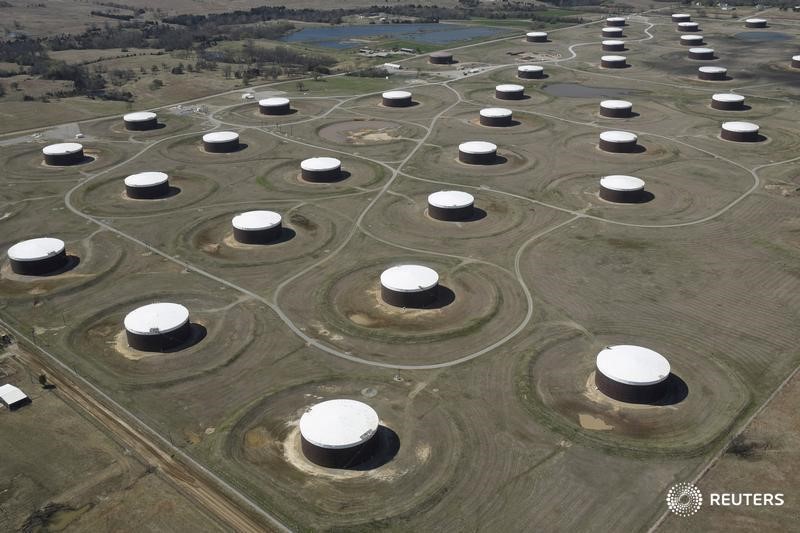By Henning Gloystein
SINGAPORE (Reuters) - Oil prices eased on Thursday as U.S. fuel inventories rose despite efforts by OPEC to cut production and tighten the market.
U.S. West Texas Intermediate (WTI) crude futures (CLc1) were trading at $51.08 per barrel at 0014 GMT, down 22 cents, or 0.4 percent, from their last settlement.
Brent crude futures (LCOc1), the international benchmark for oil prices, were at $56.65, down 29 cents, or 0.5 percent, from the previous close.
Starting this year, the Organization of the Petroleum Exporting Countries (OPEC) and other producers including Russia have agreed to cut output by 1.8 million barrels per day (bpd) to prop up prices.
The OPEC-led deal has helped lift oil from the $30-$40 per barrel range in late 2016/early 2017, but analysts say that supplies remain ample despite these cuts, thanks in large part to surging U.S. production
Jeff Brown, president of oil energy consultancy FGE told Reuters on Wednesday that prices would likely remain range-bound in 2018 and 2019 due to ongoing high fuel production and inventories.
"We don't see big reasons for inventories to go down a lot from still high levels now. Hence we don't see big reasons for prices to go up or down by much in 2018, and it's similar for 2019," Brown said in Singapore on Wednesday.
"Our updated global supply-demand balance indeed shows peak stock draws in 3Q17," U.S. bank Goldman Sachs (NYSE:GS) said in a note to clients.
Indeed, U.S. crude stocks rose by 3.1 million barrels to 468.5 million barrels last week, according to industry group the American Petroleum Institute (API).
Official U.S. fuel inventory data is due to be published on Thursday by the Energy Information Administration (EIA).
Given the ongoing high inventories, analysts expect OPEC to extend its cuts further into 2018.
"We expect OPEC will act to preserve normalized inventories as long as it doesn't lose market share and revenues, which we view as achievable in 2018," Goldman said.
"They (OPEC) need to continue to manage the market, or prices will drop a lot ... If OPEC decides not to roll over, oil prices could easily fall back into the $30s," FGE's Brown said.

Goldman Sachs said it expected Brent to average $58 per barrel in 2018.